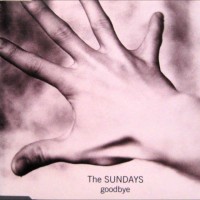At the Atlantic, Andy Horwitz asks 'Who should pay for the arts in America?' He is specifically asking about nonprofit arts, whose funding comes from paying customers, donors and other sponsors, and the public sector. He observes: The current state of the arts in this country is a microcosm of the state of the nation. Large, mainstream arts institutions, founded to serve the public good and assigned non-profit status to do so, have come to resemble exclusive country clubs. Meanwhile, outside their walls, a dynamic new generation of artists, … [Read more...]
Arts funding and peer review
At The Scotsman, Euan McColm writes about the controversy surrounding Creative Scotland's grant to artist Ellie Harrison, who will live in Glasgow for a year without leaving, in order to personally document what is known in social science as the 'Glasgow effect', whereby various measures of quality of life are markedly lower in and around Glasgow than anywhere else in the UK, if not the entire EU.* McColm's views are similar to mine: the project seems a bit iffy, but he respects the decision of Creative Scotland to fund it: If we are agreed … [Read more...]
When you can afford the very best
A thought experiment: suppose you are in a middle-class household, around the median income. What goods and services do you purchase and enjoy that are the very finest available, such that people in the top 1% of earners would consume the same item? A billionaire with a taste for Coca-Cola will drink the same coke that you do, though he/she will likely have a fancier car, house, means of air travel, etc. Tyler Cowen gives his list here, and it includes iPhones and Kindles, books and movies, writing paper and rutabagas. Let's restrict ourselves … [Read more...]
The arts, effective altruism, and data
The Seattle Times reports "With millennial philanthropy money flowing, arts groups miss out": [Elizabeth] Van Nostrand explained that Effective Altruism “is extremely quantitative. ‘How much money does it take them to save a life? Give to the one that saves the most.’ ” Though millennials like Van Nostrand and Salvatier are a generosity-minded bunch, this data-driven approach has left a traditional beneficiary of charitable giving out in the cold: the arts. Cultural institutions, which have historically been high on the list of those … [Read more...]
Performing arts and cities and (again) the creative class
A new study just published in the academic journal Economic Development Quarterly looks at the links between big (budget over $2 million) performing arts organizations and the change in the proportion of the metro workforce that is in Richard Florida's definition of the 'creative class'. The article, by Arthur Nelson and colleagues is (behind a paywall) here, and Florida discusses here. Artsjournal.com links to it with the clickbait "The study finds substantial evidence that performing arts organizations add to both the growth of the knowledge … [Read more...]
The creative class won’t save your arts organizations
Let's talk about Hartford. I've never been to Connecticut, but in the past week I have read two stories about Hartford, and it is interesting to think about the links, if any. First, the symphony is in financial troubles. Dan Haar of the Hartford Courant reports, "The symphony is bleeding $1.3 million a year and nearing the end of its cash reserves." Hartford's Connecticut Opera went bust in 2009. So far, a familiar story to a number of mid-sized US cities and their 'legacy' arts organizations. The other story comes from Richard Florida's … [Read more...]
About that University of Kentucky mural
At the University of Kentucky a 1930's WPA-funded mural by Ann Rice O'Hanlon has been temporarily covered while the university administration, faculty and students deliberate on the presentation of the work and its depiction of African-Americans. The story has prompted a response from author Wendell Berry, in an opinion piece in the Lexington Herald-Leader, where he writes: Though I willingly would do so if it were possible, I cannot understand the University of Kentucky’s decision to hide Ann Rice O’Hanlon’s fresco in Memorial Hall. The … [Read more...]
Does the creative class matter for regional growth?
In a recent post, Richard Florida looks at the growth in the 'creative class' in US metro areas since the year 2000. The biggest increase is in what was, in 2000, a city not known for creative class workers, Las Vegas. Indianapolis, Portland, Salt Lake City, and Cincinnati also post large (above 20%) gains in number of creative class workers. Does it matter? Here are a few questions that come to mind. First, I think a reasonable goal for cities is to attain broadly distributed gains across its population in standard of living and quality … [Read more...]
Blog sabbatical
Every once and a while I need to take a break from blogging, and as our semester comes to a close I know this is one of those times, to attend to other duties, to read the long list of books in my queue, and to stand back to try for something of a wider view of where arts management and policy are headed. I can sense when I am starting to repeat myself, at which point it is time to hit the refresh button. Thanks to all readers, and to Artsjournal for being such an invaluable site for news and opinion. À la prochaine ... … [Read more...]
Big data and price discrimination: chill
A search on our blog host artsjournal.com re 'big data' yields a lot of hits, suggesting it is obviously something about which arts managers need to be aware of, and which citizens might have cause to fear as corporations and governments use data in hidden but nefarious ways. But is it really all that? A recent post from the Brookings Institution on big data and price discrimination highlights for me some of the unwarranted fears and speculations. The post gives three examples of potential problems. First: Companies could use Big Data to … [Read more...]










